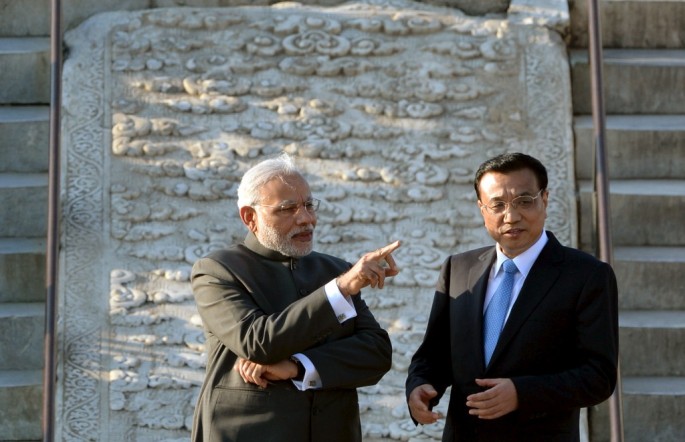Visiting Indian Prime Minister Narendra Modi received a warm welcome in the ancient city of Xian on Thursday, with President Xi Jinping accompanying him on the first leg of his three-day visit to China.
Modi's choice of Xi's hometown of Xian in Shaanxi Province, rather than Beijing, as his first stop in his China tour is seen by observers as a diplomatic gesture to highlight the close personal rapport between the two leaders, the South China Morning Post reported on Thursday.
"This is the first time I have received a foreign leader in my hometown," President Xi told Modi at the start of their meeting. "I hope you have a great time here."
It is very rare for China's top leaders to accompany foreign guests outside the capital.
Xi, who visited India in September last year, was also accompanied by Modi to the prime minister's home state of Gujarat.
Modi's tour included a visit to the Terracotta Warriors and Giant Wild Goose Pagoda, a structure built to commemorate 7th century Chinese Buddhist monk Xuan Zhang's journey to India, followed by a ceremony based on the royal welcoming events of the Tang Dynasty. Xi also hosted a banquet for the prime minister in a building on the ancient city's walls.
"The Terracotta Army is a heritage of the world. It is a testimony to China's civilizational achievements," Modi wrote in the site's visitor's logbook, adding that he was "deeply impressed" with the preservation of the artifacts.
Modi's friendly welcome, which BBC described as "very different" from the way China receives foreign leaders, showcases its improving relationship with India, which was once marred by border disputes, lack of trust and other issues.
"Our relations have developed steadily," Xi said during Thursday's meeting, adding that both countries are cooperating over railways and industrial parks and are managing the border region rather well.
"India sees China as a great neighbor," Modi said, adding that he hopes the relationship will rise to a higher level.
He said India seeks closer cooperation with China over the Asia Infrastructure Investment Bank proposed by Beijing, which will provide financial support for construction projects in the region.
Modi also agreed to link China's "One Belt, One Road Initiative" to India's Act East strategy.
"The key aim of Modi's visit is to add fuel to India's development, based on the fact that the two nations are indeed forging a closer development partnership," said Hu Shisheng, director of the Institute of South and Southeast Asian and Oceanian Studies at the China Institutes of Contemporary International Relations.
Zhao Gancheng, an expert on South Asian studies at the Shanghai Institutes for International Studies, said that dealing with China will prove to be a challenging yet important issue for the Modi administration.
"The elites in India have reached a consensus that to achieve peaceful development, India has to handle the relationship with China well," Zhao added.



























